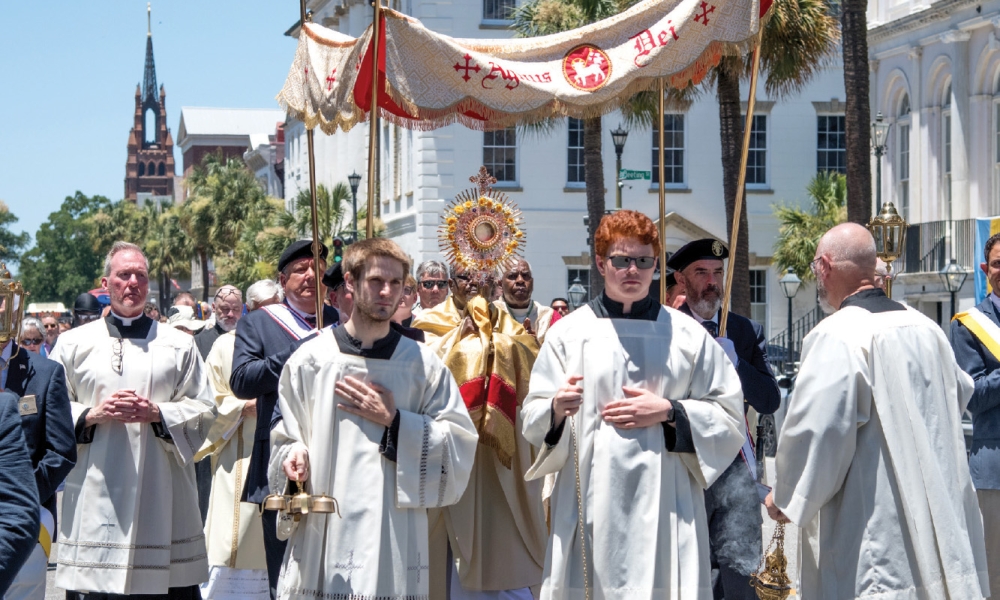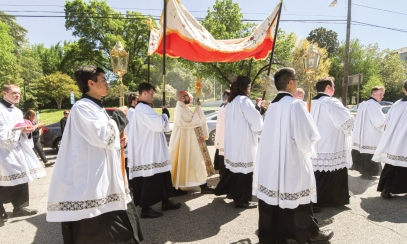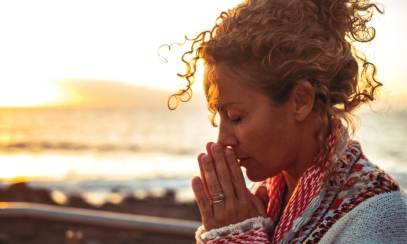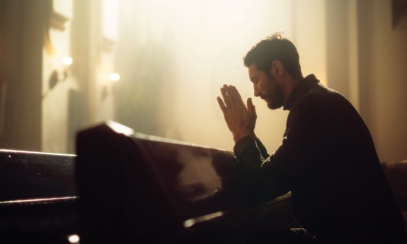
Eucharistic Congresses and the Church
Last edition, we discussed what a eucharistic congress is in anticipation of the Diocesan Eucharistic Congress and the national one, both to be held later this year. We looked at the term congress and its intrinsic connection with the eucharistic celebration.
Last edition, we discussed what a eucharistic congress is in anticipation of the Diocesan Eucharistic Congress and the national one, both to be held later this year. We looked at the term congress and its intrinsic connection with the eucharistic celebration.
These congresses have a long-established history. The first International Eucharistic Congress took place in 1881 in Lille, France. It was organized by a French laywoman, Marie-Marthe Tamisier (1834-1910) and became a repeated and regular event. The United States hosted the International Eucharistic Congress in Chicago in 1926 and in Philadelphia in 1976. This September, the Church will celebrate the 53rd international congress in Quito, Ecuador.
Our first National Eucharistic Congress was held in Washington, D.C., in 1895, and eight more were held up to 1941. So, this July’s national congress in Indianapolis will be the first we’ve had in the United States in 83 years.
We should be very familiar with this type of event even though it’s been a while. In a lot of ways, the format of a eucharistic congress is the template of many conferences and events with which we are very familiar — World Youth Day, World Meeting of Families, the National Catholic Youth Conference — that are aimed at gathering together and inspiring large groups of the faithful. The main defining characteristic of a eucharistic congress, however, is that the Eucharist is both the liturgical high point and the thematic centerpiece of any talk or presentation.
Many dioceses and archdioceses across the country have a diocesan eucharistic congress on a regular basis. Many of us are familiar with such wonderful events in nearby dioceses, and there are also many local events. For instance, this year will be the 12th Marian Eucharistic Congress, which is held annually in Greenville. Also, particularly during this period of revival, several parishes have hosted Eucharistic Congresses and invited others to join them, like our own St. James the Younger Church in Conway.
As we look forward to our Diocesan Eucharistic Congress, we should note that this is a unique event, not necessarily in terms of its format or even its size but because it is connected to what we call a particular Church. The term is used to describe each local grouping of the Church that is organized around a bishop. Like international and national eucharistic congresses, diocesan congresses allow the local community the opportunity to celebrate our common love for the Eucharist and to grow deeper in that love as a family of faith.
The most common form a particular Church takes is that of a diocese, the part of the universal Church that falls within a defined physical territory. Canon law states that a diocese is “a portion of the people of God which is entrusted to a bishop for him to shepherd with the cooperation of the presbyterium, so that, adhering to its pastor and gathered by him in the Holy Spirit through the gospel and the Eucharist, it constitutes a particular church in which the one, holy, catholic, and apostolic Church of Christ is truly present and operative” (Can. 369).
Since the earliest times of the Church, bishops have been the successors of the Apostles. They are the ones that guarantee our connection to Christ himself. So, a diocesan event is organized around the bishop and stands as a visible manifestation of the particular Church, and one that always reminds us of and points us toward the universal Church. The above definition of a diocese talks about the people of God gathered by the bishop “in the Holy Spirit through the Gospel and the Eucharist.” A diocesan eucharistic congress, then, captures the essence of the local Church. We gather around the bishop to be nourished by witness and teaching, and most importantly above all by sacrament. Like all good things, it is ultimately a work of the Holy Spirit. A large-scale gathering reminds us that the universal Church is “present and operative” in the local or particular Church.
It’s a good thing for us to hold our Diocesan Eucharistic Congress; it’s a sign of communion with the universal Church. This is true for a few reasons. First, the Catholic Church in the United States is in this process of eucharistic revival; our upcoming event is a sign of our participation in that movement. Let’s not forget that Eucharist itself is the sacrament of communion. It is the sacrament that unites the entire Church around one Lord, who offered himself on the cross at the Last Supper. The Eucharist gives us access to the one saving sacrifice of Christ himself and brings us together as one Church — across space and time, real and present in that moment with Jesus.
This is truly something to ponder as we process behind the Eucharist and celebrate the eucharistic liturgy at our Diocesan Eucharistic Congress this April 6. Please join us to take part in our shared history. If you want to join us, admission is free, but we have limited space so visit charlestondiocese.org/eucharistic-revival for ticket availability.
Michael Martocchio, Ph.D., is the secretary of discipleship and the director of the Office of Catechesis and Christian Initiation. Email him at mmartocchio@charlestondiocese.org.



